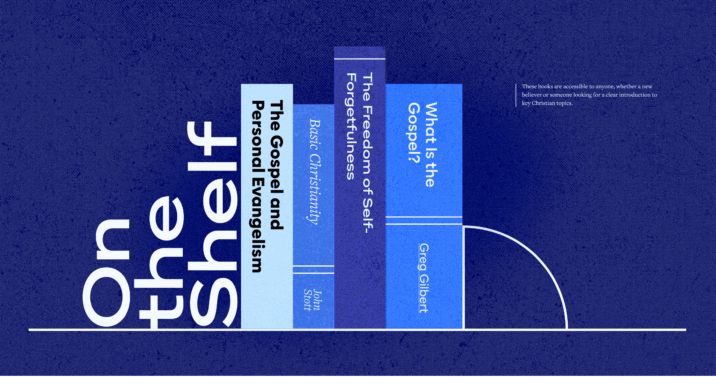Editor’s note: The resources recommended in our On the Shelf series are the opinions of the featured individuals, not those of Logos. We are publishing a breadth of voices to reflect varying perspectives within the church.
Kirk E. Miller is editor of digital content at Logos where he edits and writes for Word by Word and hosts What in the Word?. He holds an MDiv from Trinity Evangelical Divinity School and is a former pastor and church planter with a combined fifteen years of pastoral experience. Kirk lives with his wife and three kids in Milwaukee, WI, where they are active members of a local church.
You can follow him on social media (Facebook, X, and Bluesky) and his personal website.
Kirk’s recommended books are listed below. (Kirk also has a fuller list, including additional recommendations on commentaries, dictionaries, and theologies for building a pastoral library.)
Table of contents
Introductory
These books are accessible to anyone, whether a new believer or someone looking for a clear introduction to key Christian topics.

What Is the Gospel?, Greg Gilbert
This book provides a very basic and accessible presentation of the gospel, the message of salvation. Gilbert walks through the essential components of the gospel—God, man, Christ, and response—helping readers gain a clear grasp.

Basic Christianity, John Stott
John Stott provides a concise and accessible case for Christianity, addressing the foundational claims of the Christian faith. This book would be a great resource to give to non-believers.

The Freedom of Self-Forgetfulness, Timothy Keller
Drawing on 1 Corinthians 4:3–4, Timothy Keller explores how the gospel frees us from the endless pursuit of self-importance and self-justification. (It is currently only available in Logos as an audiobook.)
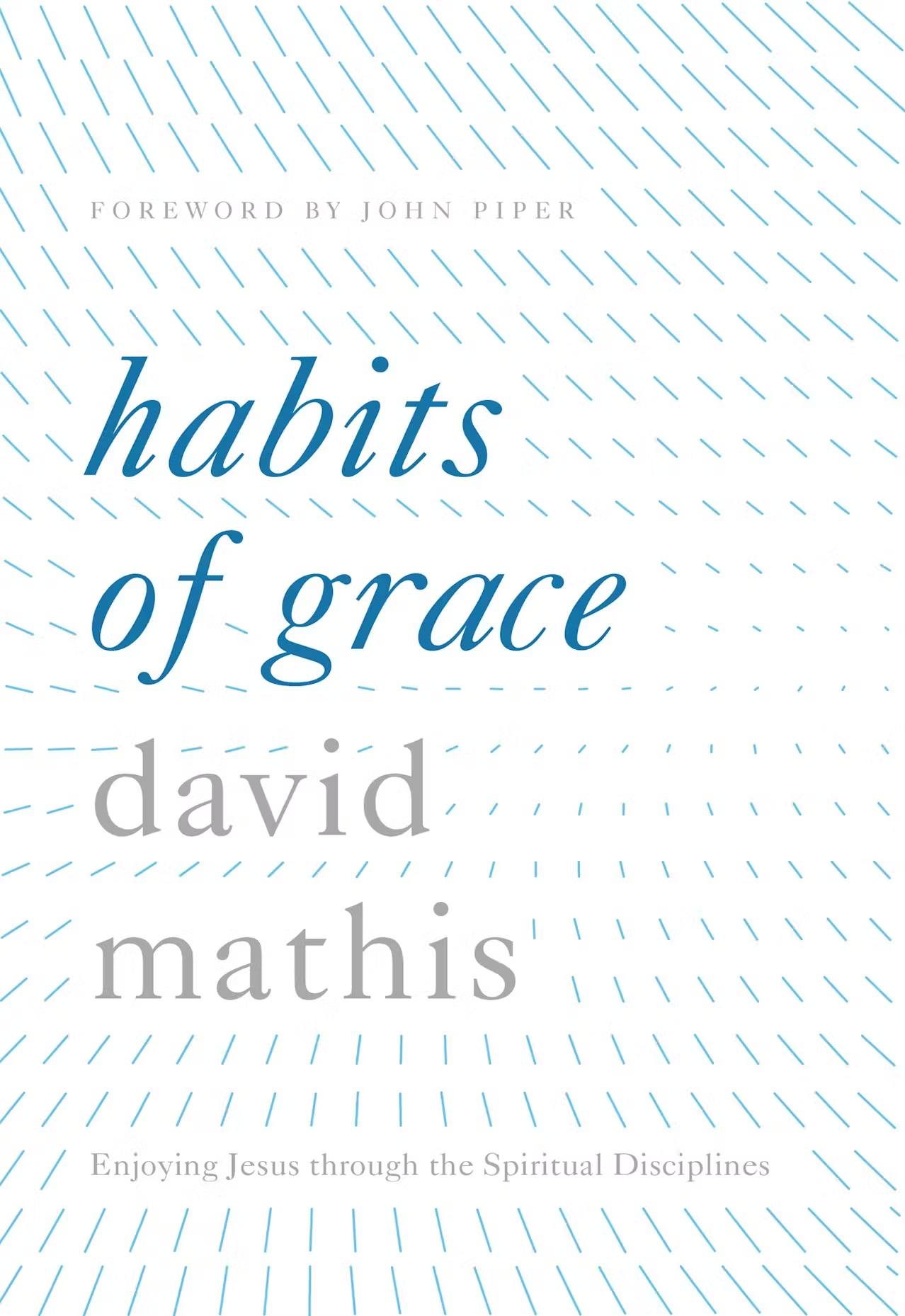
Habits of Grace: Enjoying Jesus Through the Spiritual Disciplines, David Mathis
David Mathis provides an accessible and unintimidating survey of the spiritual disciplines, showing how they are not mere duties but avenues of grace that deepen our relationship with Christ. This book offers practical guidance on Bible reading, prayer, and Christian community.

How to Read the Bible for All Its Worth, Douglas Stuart & Gordon Fee
Douglas Stuart and Gordon Fee walk through the basic principles of Scripture interpretation, surveying the Bible’s different genres and explaining how to interpret each one properly.

Knowing God, J. I. Packer
Packer surveys a number of the attributes of God. With theological depth and pastoral warmth, Packer challenges readers to move beyond mere knowledge about God to its practical significance to the Christian life.1

God’s Big Picture, Vaughan Roberts
Vaughan Roberts presents a clear and engaging overview of the Bible’s grand narrative, tracing the story of redemption from Genesis to Revelation. He shows how the entire Bible fits together as one unified story, ultimately pointing to Jesus Christ.

Family Worship, Donald S. Whitney
Donald Whitney gives biblical, historical, and practical reasons for conducting family worship and offers practical guidance on how to do so. (It is currently only available in Logos as an audiobook.)

The Gospel and Personal Evangelism, Mark Dever
Mark Dever provides a brief survey of the gospel message and the nature of evangelism, i.e., sharing that gospel. This book will be a practical encouragement to Christians who want to faithfully proclaim the good news.

What Is a Healthy Church?, Mark Dever
What makes a church truly healthy? In this book, Mark Dever provides a basic introduction to the doctrine of the church (ecclesiology) and identifies key characteristics of a sound church.

The Trellis and the Vine: The Ministry Mind-Shift That Changes Everything, Colin Marshall & Tony Payne
This book challenges common views of church ministry by shifting the focus from programs to people. Marshall and Payne argue that the heart of ministry is making disciples who make disciples. This is an essential read for pastors, church leaders, and anyone involved in ministry.

Understanding Baptism, Bobby Jamieson
In this brief but insightful book, Bobby Jamieson provides a clear and accessible introduction to what the Bible teaches about baptism. He explains its significance and how it connects to broader themes like church membership.

How Can I Love Church Members with Different Politics?, Andrew David Naselli & Jonathan Leeman
Political divisions are increasingly straining relationships within the church, yet the gospel calls believers to unity in Christ. In this short but thoughtful book, Andrew Naselli and Jonathan Leeman offer biblical wisdom on how Christians can navigate permissible political differences within the church.

Don’t Waste Your Life, John Piper
John Piper offers a pastoral charge to live our lives—every aspect of it—wholly for God. Anything else is a waste.
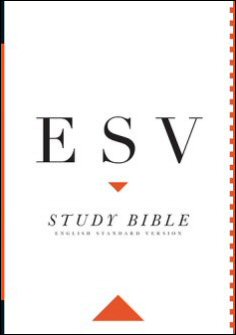
ESV Study Bible
A “one-stop-shop” resource, the ESV Study Bible includes introductions to every book of the Bible, explanatory notes on every passage in the Bible, and helpful articles on an array of important topics.

New Bible Commentary
A great one-volume commentary that provides concise and simple explanation of every book of the Bible. Written by a team of evangelical scholars, this commentary brings expertise to each contribution.
Moderate
For those looking to go further in their study, these books provide a deeper look into theology, biblical studies, and Christian living.
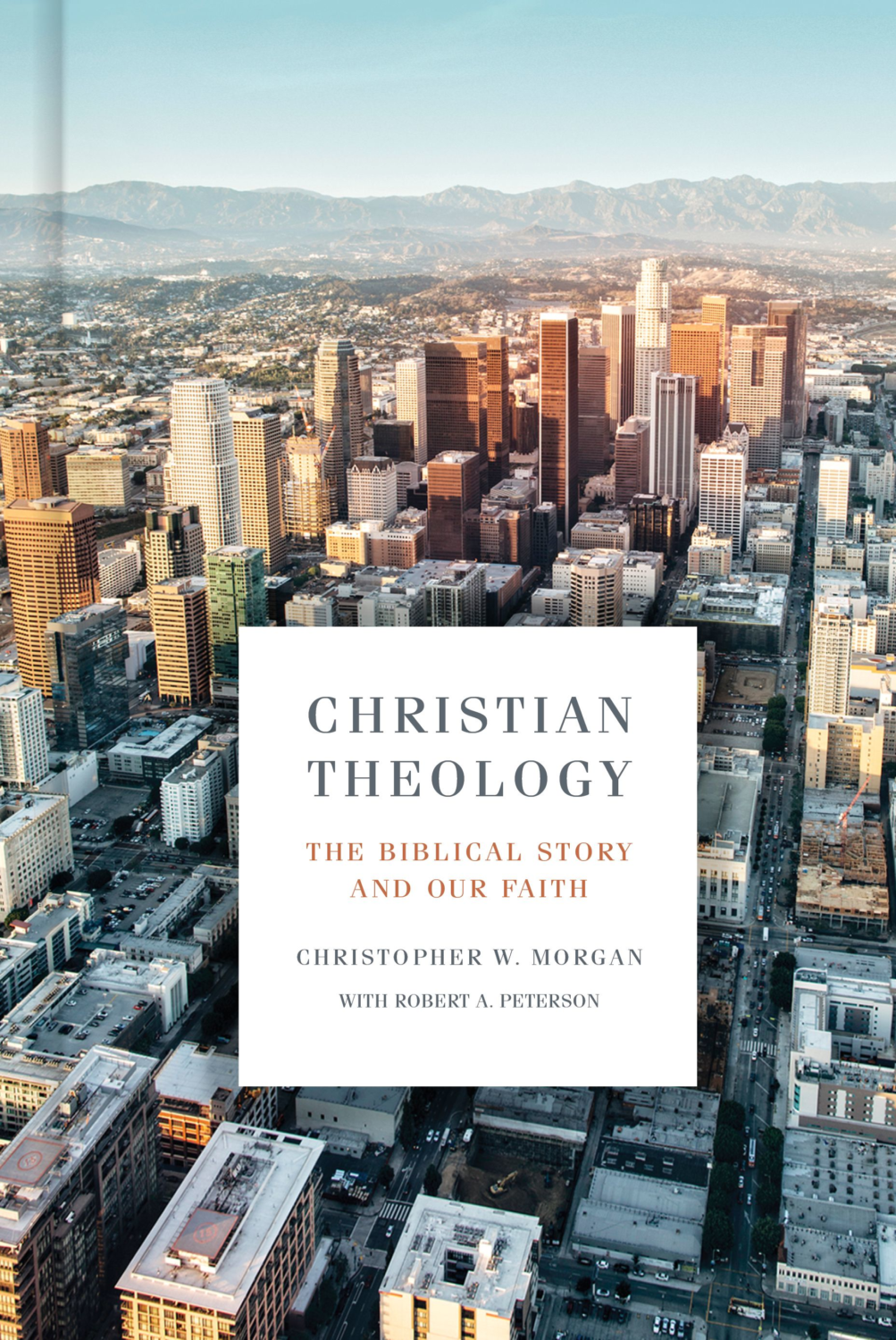
Christian Theology: The Biblical Story and Our Faith, Christopher W. Morgan & Robert A. Peterson
This book offers a relatively brief, non-technical introduction and overview of Christian doctrine. It is my go-to recommendation for a one-volume, accessible systematic theology.2

A Peculiar Glory: How the Christian Scriptures Reveal Their Complete Truthfulness, John Piper
John Piper provides a theological account of how we know the Bible is God’s Word, particularly on account of its self-attesting nature. He argues that the Bible reveals God’s glory in such a way that believers can have absolute confidence in its divine authorship.

Canon Revisited: Establishing the Origins and Authority of the New Testament Books, Michael J. Kruger
Michael Kruger provides a historical and theological defense of the Protestant canon, arguing that the New Testament books authenticate themselves as Scripture.

The Cross of Christ, John Stott
John Stott offers a theological exploration of the meaning and significance of Jesus’s cross-work. It is theologically rich and pastorally practical.

Evangelism and the Sovereignty of God, J. I. Packer
J. I. Packer examines the topic of evangelism as clarified and fueled by belief in God’s absolute sovereignty.

Christianity and Liberalism, J. Gresham Machen
Machen argues that theological liberalism is not simply another version of Christianity but a fundamentally different religion. He defends the importance of historic Christian orthodoxy against modernist distortions, emphasizing the necessity of doctrinal faithfulness.

According to Plan, Graeme Goldsworthy
Graeme provides a biblical–theological overview, tracing the overarching storyline of Scripture to help readers grasp its unity and convergence in Christ.

Dominion and Dynasty: A Theology of the Hebrew Bible, Stephen G. Dempster
Stephen Dempster examines the overarching narrative of the Hebrew Bible, highlighting the promises of land and the ruling seed. This book provides a valuable framework for understanding how the Old Testament contributes to biblical theology.

The Mission of God: Unlocking the Bible’s Grand Narrative, Christopher J. H. Wright
Christopher Wright explores the storyline of Scripture through the theme of God’s mission. He argues that mission is not just one biblical theme among many, but is central to the Bible’s message. This book provides a theological framework for understanding how God’s redemptive plan unfolds from Genesis to Revelation, challenging Christians to see their role in his mission.

On the Incarnation, Athanasius of Alexandria
Athanasius presents a timeless explanation for why God became man and what role the incarnation plays in salvation. Athanasius’s soteriology serves to expand our sense of what Christ accomplished.

The Bondage of the Will, Martin Luther
In this theological classic, Martin Luther provides a theological account of human freedom in relation to sin and divine sovereignty. He challenges Erasmus’s view of human ability and emphasizes the necessity of God’s grace in salvation.

The Whole Christ: Legalism, Antinomianism, and Gospel Assurance—Why the Marrow Controversy Still Matters, Sinclair B. Ferguson
Sinclair Ferguson treats the relationship between law and gospel and their role in the life of the believer. Through the lens of the eighteenth-century Marrow Controversy, Ferguson analyzes subjects like legalism, antinomianism, and assurance, showing how they remain deeply relevant to Christian life today.

Christian Ministry, Charles Bridges
A classic Puritan work on pastoral ministry, this book provides timeless insights into the responsibilities, challenges, and callings of a minister. Bridges explores the causes of inefficiency in ministry and offers practical wisdom for faithful service.

The Reformed Pastor, Richard Baxter
This updated and abridged edition of Richard Baxter’s classic makes his wisdom more accessible to modern readers. Baxter offers a Puritan approach to pastoral ministry with special attention on the practice of pastoral visitation.

Mere Christianity, C. S. Lewis
Originating as a series of radio talks, Lewis makes an engaging argument for Christianity. Using his celebrated literary skills, Lewis presents core Christian claims in a way that is both intellectually engaging and deeply inspiring.

Making Sense of God: Finding God in the Modern World, Timothy Keller
Timothy Keller provides a compelling case for Christianity, showing how Christianity makes better sense than the alternatives. Christianity provides answers to questions in a way that secularism doesn’t have the resources to do.

The Reason for God: Belief in an Age of Skepticism, Timothy Keller
Keller makes a case for Christianity, surveying some of its key arguments and answering some of its most common objections.

Confronting Christianity: 12 Hard Questions for the World’s Largest Religion, Rebecca McLaughlin
Rebecca McLaughlin addresses some of the most pressing contemporary objections to Christianity. With clarity, depth, and persuasion, she addresses matters like slavery in the Bible, the exclusivity of Christ, alleged challenges of science, and the existence of evil.

Secular Creed: Engaging Five Contemporary Claims, Rebecca McLaughlin
Rebecca McLaughlin assesses some top contemporary sentiments and beliefs from a Christian perspective. She carefully identifies their underlying assumptions and challenges modern secular ideologies from a Christian framework.

The Uneasy Conscience of Modern Fundamentalism, Carl F. H. Henry
Carl Henry calls for evangelicals in his day to actively engage the social ills of society while at the same time avoiding social gospel. Its message is still relevant today—if we are to avoid the ditch of quietism, on the one hand, and displacing the church’s mission for activism or politics on the other.
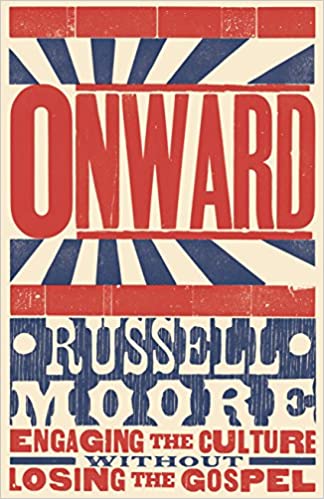
Onward: Engaging the Culture Without Losing the Gospel, Russell D. Moore
Russell Moore presents a contemporary Christian manifesto for cultural and societal engagement that avoids compromise or the superficiality of “cultural Christianity.”

Creation Regained: Biblical Basics for a Reformational Worldview, Albert M. Wolters
This book applies the Reformed (Neo-Calvinist) worldview to how we think about life and society. It explores how the biblical contours of creation, fall, and redemption shape our understanding of God’s mission—and by extension ours—within culture, work, and society.

How the Nations Rage: Rethinking Faith and Politics in a Divided Age, Jonathan Leeman
Jonathan Leeman provides an excellent popular-level theology of Christian political engagement. He addresses how believers should navigate faith and politics in a deeply divided world.

Strange New World: How Thinkers and Activists Redefined Identity and Sparked the Sexual Revolution, Carl R. Trueman
A briefer, more popular-level treatment of Trueman’s The Rise and Triumph of the Modern Self, this book traces the intellectual and cultural developments that have shaped modern views on identity, sexuality, and self-expression.

Divided by Faith: Evangelical Religion and the Problem of Race in America, Michael O. Emerson & Christian Smith
This sociological study examines the deep racial divides within American evangelicalism. It explores the stark differences in how white and Black evangelical Christians tend to assess racial disparities.

Here I Stand: A Life of Martin Luther, Roland H. Bainton
A stimulating and inspiring biography of Martin Luther, this book captures the drama of the Reformation and Luther’s unwavering commitment to the authority of Scripture. It remains one of the best introductions to Luther’s life and legacy.
Advanced
The following are my recommended reads among more advanced, technical works.

Kingdom Through Covenant: A Biblical-Theological Understanding of the Covenants, Peter J. Gentry & Stephen J. Wellum
This work provides a comprehensive survey of the Bible’s overarching storyline through the lens of its covenants. Gentry and Wellum present a detailed analysis of how God’s covenantal promises unfold throughout Scripture and draw out its theological implications.

A New Testament Biblical Theology: The Unfolding of the Old Testament in the New, G. K. Beale
Beale provides an advanced biblical theology culminating years of scholarly work. He traces key themes that hold the Bible together and reach their climax in the New Testament.
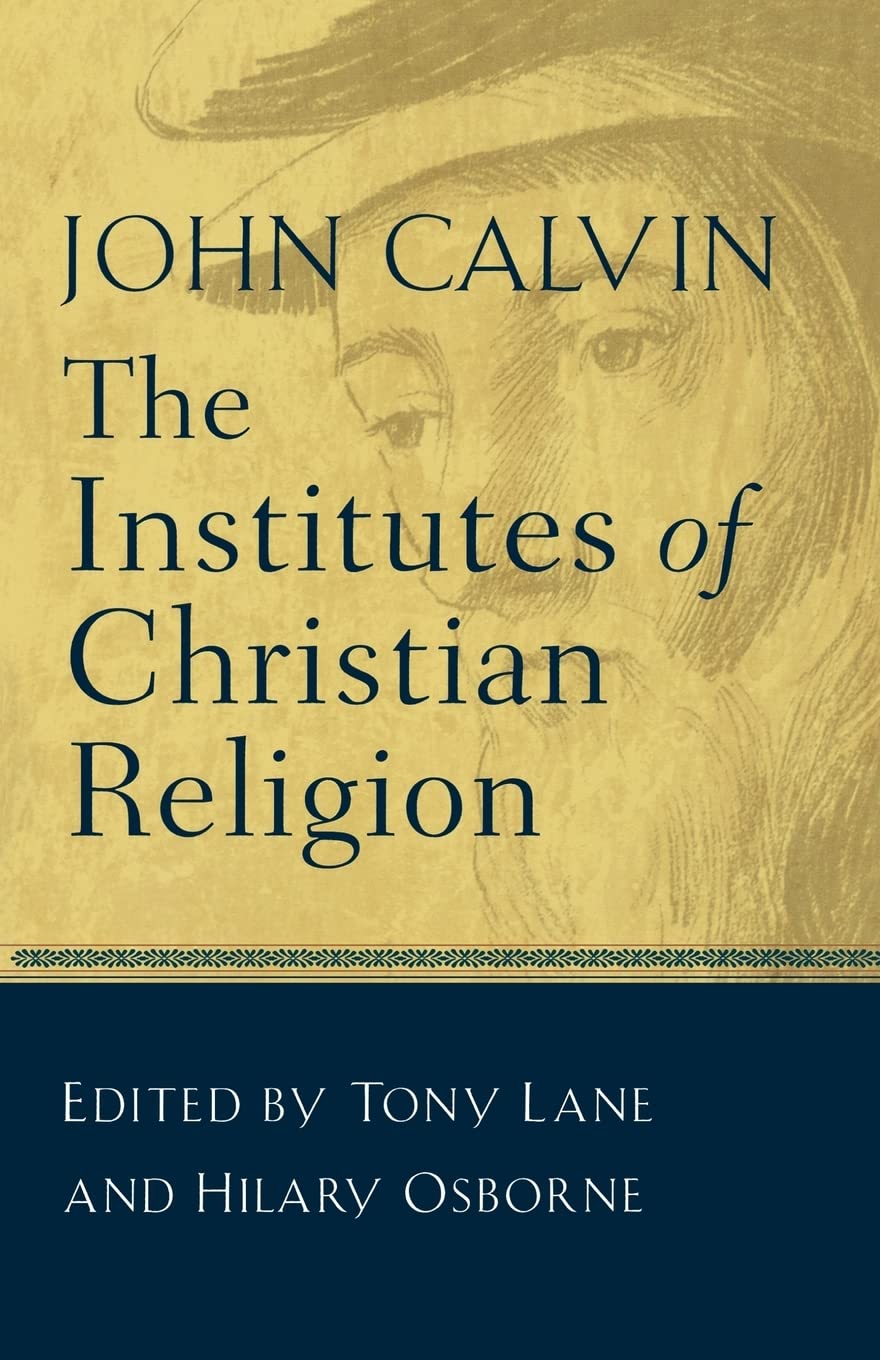
The Institutes of Christian Religion, John Calvin (abridged)
This abridged version, edited by Tony Lane and Hilary Osborne, of Calvin’s monumental work offers a concise and accessible overview of the Institutes for those wanting to grasp its essence without diving into the full text.

Institutes of the Christian Religion, John Calvin
Calvin’s Institutes offers a complete survey of Christian doctrine from a traditional Reformed perspective, presented with pastoral warmth and theological precision.

Reformed Dogmatics, Herman Bavinck
Bavinck’s Reformed Dogmatics is an excellent systematic exploration of Reformed theology from the Dutch, Neo-Calvinist tradition.

Paul: An Outline of His Theology, Herman Ridderbos
Ridderbos provides a thorough survey of Paul’s theology, focusing particularly on its redemptive–historical shape. This reference work is invaluable for anyone studying Paul’s letters.

Resurrection and Redemption: A Study in Paul’s Soteriology, Richard B. Gaffin
Gaffin delves into Paul’s theology of resurrection, arguing that it is key to his understanding of the salvation worked by Christ. This study will expand your perspective on how Christ’s resurrection shapes soteriology and the New Testament.

Political Church: The Local Assembly as Embassy of Christ’s Rule, Jonathan Leeman
Leeman provides a redemptive–historical approach to political theology, focusing on the local church’s role as an embassy of Christ’s reign. With particular attention to ecclesiology, this book offers a biblical framework for understanding the church’s political witness in the world.

The Rise and Triumph of the Modern Self: Cultural Amnesia, Expressive Individualism, and the Road to Sexual Revolution, Carl R. Trueman
Trueman explores the philosophical roots of contemporary cultural trends, including the rise of expressive individualism and its implications for matters like transgenderism. This advanced, technical work offers an invaluable historical and philosophical framework for understanding the cultural landscape today.

Desiring the Kingdom: Worship, Worldview, and Cultural Formation, James K. A. Smith
Smith argues that our lives and actions our directed primarily by what we love, and institutions in society shape these loves. Christian worship (liturgy), in contrast, is to have a counter-formative influence on our loves—and by extension our lives.
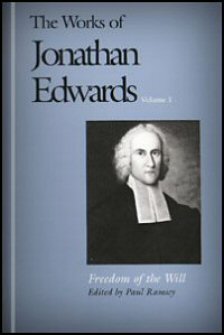
Freedom of the Will, Jonathan Edwards
Edwards sets forth a philosophical–theological account of the nature of human freedom in light of God’s absolute sovereignty. Though written in dense, difficult prose, Edwards’s work offers deep insights into the complex relationship between divine will and human freedom.

Religious Affections, Jonathan Edwards
Edwards provides a detailed analysis of 1 Peter 1:8 in view of considering the affections that accompany genuine conversion. This classic work is foundational for understanding the experiential dimensions of true faith.
Devotional
Two resources for use in both family and personal devotion are:

The Valley of Vision: A Collection of Puritan Prayers & Devotions, Arthur G. Bennett
This beloved collection of Puritan prayers offers deep, theologically rich reflections on the gospel and its applications to the Christian life. This collection of prayers makes an excellent devotional companion.

The Trinity Hymnal
Used in many Reformed churches, this hymnal is a valuable resource for personal and family worship.
Children’s
Here are my favorite books for small children.

The New City Catechism: 52 Questions and Answers for Our Hearts and Minds
This contemporary catechism introduces children to the core elements of the Christian faith through a question-and-answer format. To aid memorization, each question has an accompanying song that can be accessed through the mobile app.

The Big Picture Story Bible, David R. Helm & Gail Schoonmaker
Helm offers a fantastic overview of the Bible’s storyline, tracing the themes of God’s people, in God’s place, under God’s rule, experiencing God’s presence. This is my favorite “kid’s Bible.”

The Biggest Story: How the Snake Crusher Brings Us Back to the Garden, Kevin DeYoung & Don Clark
DeYoung masterfully traces the theme of the seed promise through select Scriptures, showing how the “Snake Crusher” brings us back to the Garden of Eden. The top-notch illustrations from Don Clark put the cherry on top.

The Ology: Ancient Truths, Ever New, Marty Machowski & Andy McGuiew
This book is essentially a systematic theology for children. Making use of illustrations, it teaches the essential doctrines in a simple yet engaging way.

God’s Very Good Idea Storybook: A True Story of God’s Delightfully Different Family, Trillia J. Newbell & Catalina Echeverri
Newbell tells the story of Scripture—creation, fall, redemption, and consummation—through the theme of ethnic diversity and reconciliation, teaching children about God’s delight in a beautifully diverse family.

The Garden, the Curtain and the Cross Storybook: The True Story of Why Jesus Died and Rose Again, Carl Laferton & Catalina Echeverri
Laferton walks children through the biblical storyline, focusing on the theme of access to God’s presence. We go from the garden to the temple to Christ. “Because of your sin, you can’t come in. But I died on the cross to take your sin, so all my friends can now come in!”

The Chronicles of Narnia, C. S. Lewis
This beloved fictional series by C. S. Lewis contains rich Christian themes. It captivates children with its imaginative stories while subtly teaching important truths about the Christian faith.
Related articles
- Top Preaching Tools & Resources That Belong in a Pastor’s Library
- 11 Best Books on the Trinity (for All Levels of Study)
- 29 Biblical Theology Books to Help You Go Deeper

- Unfortunately in this work, Packer proposes eternal subordination of the Son. Outside of this, the book is quite commendable.
- In their section on Christology, the authors defend something of a functional kenotic theory of Christ’s incarnation, which I find problematic and of which I would want to make readers aware.

